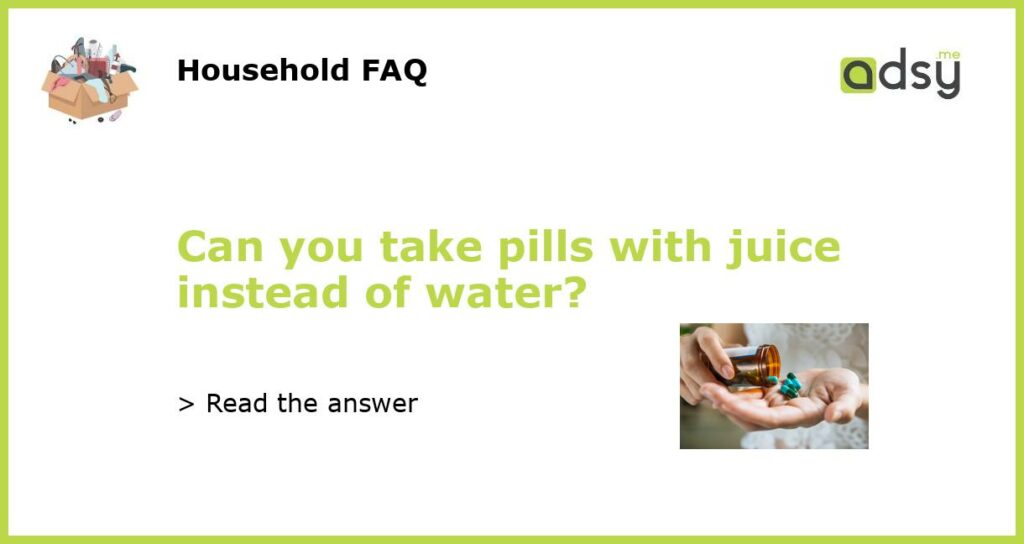Yes, you can take pills with juice instead of water
Many people find it difficult to swallow pills, and taking them with water can be challenging. In such cases, taking pills with juice is a common alternative. Juice can help mask the taste of medication and make it easier to swallow. However, there are a few considerations to keep in mind when taking pills with juice.
The importance of following instructions
Before discussing the use of juice as an alternative to water, it’s essential to highlight the importance of following the instructions provided by your healthcare professional or pharmacist. Medications often come with specific instructions on how to take them, including whether they should be taken with water or on an empty stomach. It’s crucial to read and adhere to these instructions to ensure the medication’s effectiveness and avoid potential interactions.
Choosing the right type of juice
When considering using juice to take pills, it’s important to choose the right type of juice. Acidic juices like orange, grapefruit, or pineapple juice are often recommended, as they can help break down the medication and make swallowing easier. These juices also tend to have stronger flavors, which can help mask the taste of the medication. However, it’s important to note that certain medications may have specific dietary restrictions, and certain juices may interact with medications. It’s best to consult your healthcare professional or pharmacist to ensure there are no known interactions between your medication and the juice you plan to use.
Using the right amount of juice
When taking pills with juice, it’s crucial to use the right amount of juice to ensure proper absorption of the medication. It’s generally recommended to use at least 4 ounces (120 ml) of juice to ensure the medication is adequately dissolved and swallowed. However, it’s important to confirm the appropriate dosage with your healthcare professional or pharmacist, as some medications may require larger amounts of liquid for optimal absorption.
Additional considerations
While taking pills with juice is a common practice, there are a few additional considerations to keep in mind:
- Sugar content: Some juices, especially fruit juices, can contain high amounts of sugar. If you have dietary restrictions or conditions like diabetes, it’s important to choose a low-sugar or no-sugar-added juice option.
- Compatibility: Some medications may have specific requirements for optimal absorption, such as being taken with water only or on an empty stomach. It’s important to consult your healthcare professional or pharmacist to ensure that juice is an appropriate alternative for your specific medication.
- Allergies: Some individuals may have allergies to certain types of juice. If you have known allergies, it’s important to choose a juice that is safe for you to consume.
- Timing: It’s important to consider the timing of taking pills with juice. Some medications may require specific timing instructions, such as taking them before or after meals. Ensure you follow the recommended timing instructions provided by your healthcare professional or pharmacist.
Taking pills with juice can be a suitable alternative for those who have difficulty swallowing medication with water. However, it’s crucial to follow the instructions provided by your healthcare professional or pharmacist, choose the right type and amount of juice, and consider any additional factors specific to your medication or health condition. If you have any concerns or questions, it’s best to consult with your healthcare professional or pharmacist for guidance.






